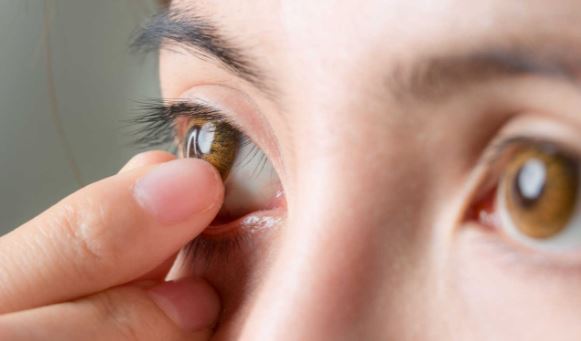Lifestyle
How to prevent eye damage from contact lenses

Contact lenses offer convenience and clarity for millions worldwide, but improper care can lead to serious eye issues like infections and corneal damage.
To ensure safe and effective use of contact lenses, follow these essential guidelines and understand the risks associated with their misuse.
Understanding the risks
Contact lenses, if not used correctly, pose several risks to eye health. These include infections such as microbial keratitis, corneal ulcers, discomfort, and reduced vision quality. Factors contributing to these risks include improper hygiene, extended wear, exposure to water sources, poor lens fit, and ignoring symptoms of discomfort or irritation.
Essential guidelines
Adhere to professional advice: Always follow your eye care professional’s instructions regarding wearing schedules, cleaning routines, and general eye care. Their guidance is crucial for maintaining healthy eyes and ensuring proper lens care.
Prioritize hand hygiene: Wash your hands thoroughly with soap and water before handling your contact lenses. Clean hands prevent the transfer of bacteria and dirt to your lenses and eyes, reducing the risk of infections.
- Use fresh contact lens solution: Clean and store your lenses in fresh contact lens solution every time you remove them. Never reuse old solution or top off the existing one in your lens case. Regularly clean your lens case and replace it every three months to maintain lens hygiene.
- Remove lenses before sleeping: Unless your lenses are specifically designed for extended wear, such as certain silicone hydrogel lenses, always remove them before sleeping.
- Schedule regular eye exams: Routine eye exams are essential for monitoring your eye health and ensuring your lenses fit properly. Your eye care professional can detect early signs of issues like dry eyes or improper lens fit, preventing potential damage.
- Follow replacement schedules: Whether your lenses are daily disposables, bi-weekly, or monthly, adhere strictly to the recommended replacement schedule. Using lenses beyond their lifespan can lead to deposits buildup and increase the risk of infections.
- Hydrate your eyes: Use rewetting drops recommended by your eye care professional if you experience dryness or discomfort while wearing lenses. Proper hydration helps maintain comfort and reduces the risk of dry eye complications.
- Avoid water exposure: Never expose your lenses to water sources such as tap water, swimming pools, hot tubs, or showers. Water can introduce harmful microorganisms to your lenses, leading to severe eye infections.
- Handle with clean hands: Avoid touching your eyes or lenses with unwashed or dirty hands. Bacteria and debris from hands can adhere to lenses and cause infections or irritations.
- Recognize symptoms and act promptly: If you experience persistent discomfort, redness, or changes in vision while wearing lenses, remove them immediately and consult your eye care professional. Ignoring symptoms can lead to complications that may affect your vision.
By following these guidelines diligently, you can significantly reduce the risk of corneal damage and other eye-related issues associated with wearing contact lenses. Safe practices ensure clear vision and comfortable contact lens use for years to come. Remember, your eyes deserve the best care possible









